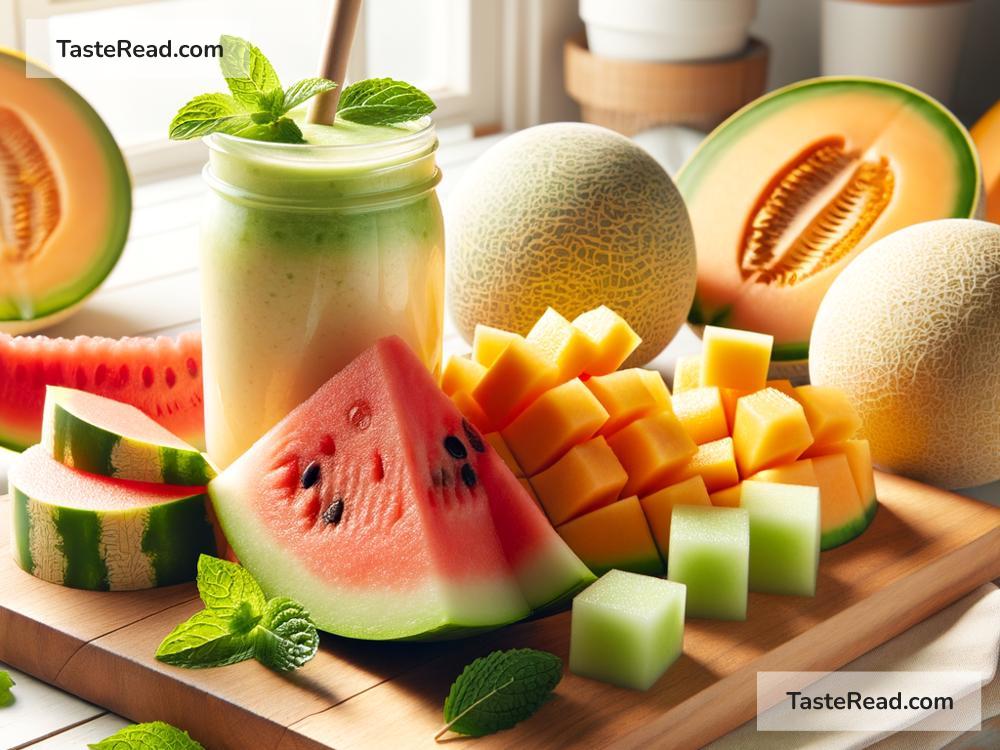Exploring the Nutritional Benefits of Melons
Melons are one of nature’s sweetest and most refreshing treats. Whether it’s a juicy watermelon chunk on a hot summer day, a slice of cantaloupe with breakfast, or some honeydew cubes in a fruit salad, melons are loved worldwide for their taste and texture. But did you know that melons aren’t just delicious? They are packed with nutrients that can do wonders for your health! In this blog, we’ll explore the nutritional benefits of melons and why you should make them a regular part of your diet.
What Are Melons?
Melons are a type of fruit that grows on trailing vines. They belong to the gourd family and come in many varieties. The most common melons are watermelon, cantaloupe, and honeydew, but there are others like musk melon and bitter melon. Each type has a unique flavor and texture, but they all share some incredible health benefits.
Hydration Hero: Melons Have High Water Content
One of the standout features of melons is their high water content. Watermelons, for instance, are made up of about 92% water! This makes them an excellent choice for staying hydrated, especially during hot weather or after a workout. Staying hydrated helps your body function properly, keeps your skin glowing, and prevents fatigue. If you’re tired of plain water, snacking on some melon is a fun and flavorful way to boost your hydration.
Rich in Vitamins and Minerals
Melons are packed with essential vitamins and minerals. Let’s take a closer look at what they bring to the table:
-
Vitamin C: Melons, especially cantaloupes, are rich in vitamin C. This powerful antioxidant strengthens your immune system, helps your body fight off infections, and supports healthy skin.
-
Vitamin A: Cantaloupes also contain a good amount of vitamin A. This vitamin is important for maintaining healthy vision, boosting your immune system, and promoting good skin health.
-
Potassium: Watermelon and honeydew melons are great sources of potassium. Potassium helps regulate blood pressure, supports muscle function, and maintains heart health.
-
Magnesium: Many melon varieties contain magnesium, a mineral that contributes to energy production and helps with muscle and nerve relaxation.
Melons offer all these nutrients while being low in calories, making them a great addition to your diet if you’re trying to eat healthy and stay fit.
Low-Calorie, High-Fiber Snack
If you’re looking for a guilt-free snack that won’t derail your diet, melons are a fantastic option. They are naturally sweet, satisfying, and low in calories. For instance, 1 cup of watermelon has less than 50 calories! Along with being low in calories, melons contain dietary fiber. Fiber helps keep your digestive system running smoothly, prevents constipation, and keeps you feeling full longer, which can support weight management.
Antioxidants and Disease Prevention
Melons, especially watermelons, contain antioxidants like lycopene. Lycopene is a compound that gives watermelons their pinkish-red color and has been linked to various health benefits. Antioxidants protect your cells from damage caused by harmful molecules called free radicals. Over time, this protection may lower your risk of chronic illnesses like heart disease or certain types of cancer. Eating foods rich in antioxidants is an easy and delicious way to keep your body strong.
Supports Heart Health
Melons are heart-friendly fruits. The potassium in melons helps keep your blood pressure under control, reducing stress on your heart and lowering the risk of heart disease. Lycopene, found in watermelons, has also been recognized for its role in supporting heart health. Regularly eating melons as part of a balanced diet can give your heart extra love and care.
Good for Skin and Hair
Who doesn’t love glowing skin and healthy hair? Melons help you achieve that thanks to their vitamins and hydration benefits. Vitamin A promotes skin repair and keeps your hair strong, while vitamin C helps your body produce collagen—a protein that keeps your skin smooth and elastic. The high water content in melons also helps flush out toxins from your body, giving your complexion an extra boost.
Easy to Add to Your Diet
One of the best things about melons is how versatile they are. You can eat them fresh as a snack, toss them into salads, blend them into smoothies, or even use them in desserts. They’re a great addition to any meal or dish and pair well with other fruits, vegetables, and flavors.
If you’re hosting a party, why not create a colorful fruit platter featuring slices of watermelon, cantaloupe, and honeydew? You can even scoop out melon balls for an elegant presentation. Kids and adults alike will love the sweet taste and fun textures.
Conclusion
Melons are more than just tasty fruits—they’re nutrition-packed superfoods that can boost your health in many ways. From hydration to heart health, melons offer a wide range of benefits thanks to their vitamins, minerals, antioxidants, and fiber content. They’re also low in calories, making them a guilt-free addition to your meals, snacks, or desserts.
Next time you’re at the grocery store, add some melons to your cart. Whether you prefer watermelon, cantaloupe, honeydew, or another variety, you’re treating your body to a fruit that’s as healthy as it is refreshing. So, go ahead and enjoy melons year-round, and reap the rewards of their amazing nutritional benefits!


